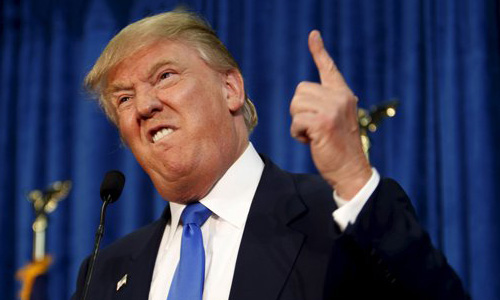 …so I was in a room with a few Executives who had ‘spared me some of their time’ to allow a discussion about how I could help them move their organisation towards its stated purpose.
…so I was in a room with a few Executives who had ‘spared me some of their time’ to allow a discussion about how I could help them move their organisation towards its stated purpose.
I said something and almost immediately one of the Executives leapt back with a seemingly clever (or was that merely ‘conventional’) and forceful counter. He then looked at me in such a way as to imply that:
- what I had said was clearly very stupid; and
- my lack of immediate and razor-sharp response to his challenge proved that he was right.
The implication was that I didn’t know ‘as much’ as him (as in “Silly boy, you are wasting my time…best go away until you can justify being before me”). There was no consideration that I (might) know different things to him.
I took a moment, I pondered what he had said, I thought about what I had said and I provided a reasoned response.
…and he leapt back with another counter, getting more animated and looking around the room at his fellow executives for emotional support. They (quite naturally) returned some smirks to him, translated as clear and obvious agreement with what he was saying.
I quickly realised that this had (unexpectedly) escalated, that my original comment had not fitted into his current world view and that there was no way that I would alter his thinking by attempting a short verbal rational explanation…so I politely said words to this effect and attempted to move on.
..and so he and the Executives sat back with smiles on their faces, looking smug that they had ‘won the argument’ – and that they were clever, and clearly more so than this upstart before them.
Hang on a minute! ‘Won the argument’? Who said there was an argument? It certainly wasn’t supposed to be (Cue Monty Python ‘argument’ sketch).
I suspect that such meetings with ‘command and control’ executives are all too common.
I compare them back to what I imagine to be the format of public school boy debating societies:
- you have a position which must be pushed, and defended, at all costs;
- you’ve got a fixed time to put your point across;
- there will be a vote at the end to determine a result;
- there is glory to be seen as the winner;
- there is mirth to be shown to the loser, who will be considered ‘weak’; and
- once the debate is over, it is ‘case closed’.
Note: None of the above was actually a surprise to me. I know about different worldviews, about rational vs. normative change and about the boomerang effect*.
(* the unintended consequences of an attempt to persuade resulting in the adoption of an opposing position instead).
The reasons for writing this post are merely to share:
- the similarity between exchanges with ‘command and control’ executives and school boy debating; and
- how easy it is for such a well meaning ‘rational’ conversation to descend into a head-to-head ‘win or lose’ argument.
…oh yes, and as some form of therapy for me 🙂
To all those executives out there:
If you are an executive and people put forward ideas that differ to your own, I’d humbly suggest you see this as a (free, yet valuable) opportunity to self-develop and improve (rather than protect) your world view.
As a point of fact: If the person in front of you believes differently to you then there must be reasons for this…and it could be very useful for you to consider and understand why…and thus mature and/or expand (rather than defend) your thinking.
Its taken me a long time (and a lot of anguish) to learn the futility of trying to have a ‘rational debate’ with people such as those leaders you describe.
I think I’ve learned it now, but it’s amazing how easy it is to stumble down that path if you’re not careful. You can’t tell them – they really “don’t like it up ’em”.
LikeLiked by 1 person
Yep, “They don’t like it up ’em” 🙂
LikeLike